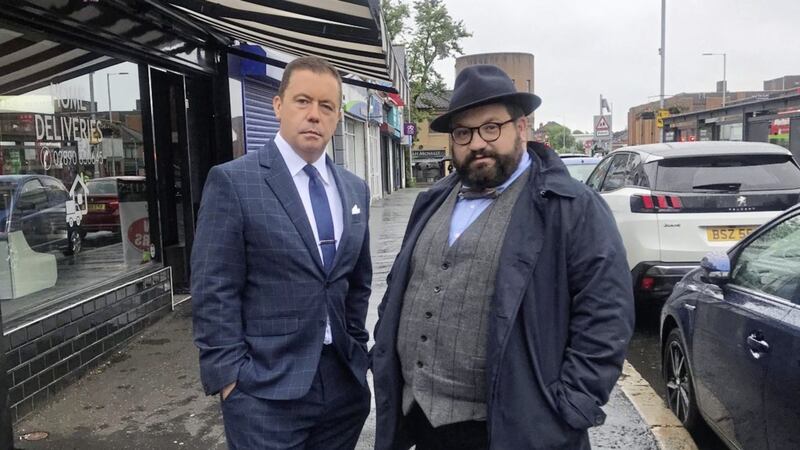THE heads of two of the north's leading retail bodies have warned that businesses must take urgent steps to prepare for the prospect of a no-deal Brexit.
Glyn Roberts and Aodhán Connolly, the leaders of the Retail NI and the Northern Ireland Retail Consortium respectively, have said businesses must take action to ensure long-term survival post-Brexit.
The pair were speaking following the release of a Department for the Economy report, which states that 40,000 jobs in Northern Ireland are at risk in the event of the UK leaving the EU without a deal.
"Supply chains are only as strong as the weakest link so businesses need to start thinking about what goes into their products and where their products come from and go to," Mr Connolly said.
"Businesses need to take action now to ensure that they have made the preparations and mitigations needed to keep their goods flowing. Any product that goes across the border, should that be a sandwich or a pizza, will need an Export Health Certificate. Businesses will also need to inform the Department of Agriculture, Environment and Rural Affairs (DAERA) exactly what is being moved. If a product is made of several ingredients, exporters will have to prove the provenance of each of the ingredients which adds cost and complexity to the supply chain.”
It is estimated that DAERA will have to undertake 100 times the checks and will be forced to contend with 10,000 per cent increase in Export Health Certificates in a no-deal scenario.
Businesses trading goods across the border could also face increased costs and administrative burdens, while those wishing to trade with the Republic and the rest of the EU will have to register for the Economic Operator Registration and Identification (EORI) scheme. At present the registration rate in the north is proportionally lower than in Britain.
"It is essential that businesses start to engage with both DAERA and HMRC on these schemes, particularly micro and small businesses. The lack of proper preparation could mean the difference between make and break for some businesses," Mr Roberts warned.
“Our politicians must be aware of the effect that a no deal will have for our consumers. With households here having half of the discretionary income of British households, any cost rises will be felt hardest in Northern Ireland. We need to protect our business and consumers," he continued.
Referring directly to retailers, Mr Connolly said they must urgently review operations ahead of the official leaving date of October 31.
“Each year Irish household expenditure on shopping in Northern Ireland is around €458m, not just in the border catchment area, but right up as far as Belfast. All that is in jeopardy in a no-deal Brexit scenario. Retailers must take a fundamental look at their business model and take whatever steps they can to mitigate and adapt before the October 31 deadline," he added.








